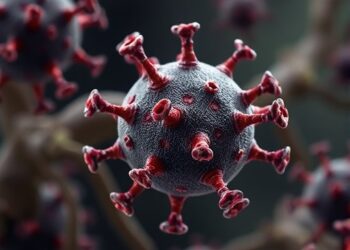New Curtin University research has found an inpatient treatment approach can help adults with eating disorders improve not only their physical health, but also their psychological health.
New Curtin University research has found an inpatient treatment approach can help adults with eating disorders improve not only their physical health, but also their psychological health.
‘High-energy refeeding’ is frequently used to treat malnourished adolescents with anorexia nervosa and involves patients consuming a progressively higher energy intake over a short period of time, to quickly restore their nutritional health.
It’s been thought this approach could prove problematic when treating adults with the same condition — however this may not be the case.
Researchers from Curtin’s School of Population Health investigated 97 voluntary hospital inpatients (55 adults and 42 adolescents) with eating disorders, the majority anorexia nervosa, who were treated using a high-energy refeeding protocol.
The team found both age groups responded well to high-energy refeeding, reporting very similar positive weight change and improvements in measurements of their psychological health.
Masters student and study lead Fiona Salter said there were previous concerns adult patients undergoing high-energy refeeding could be at increased risk of developing refeeding syndrome, a potentially fatal condition which can occur when a severely malnourished person starts eating again and causes a sudden shift in fluid and electrolytes.
“In addition, more frequent mental health issues in adult patients could complicate their medical care,” Ms Salter said.
“However, only one adult participant in our study did not tolerate the high-energy protocol due to oedema, which is an excess of fluid accumulating in body tissues.”
Study co-author Dr Emily Jeffery said the findings indicate high-energy refeeding in adults who are mildly and moderately malnourished can be administered safely and has both nutritional and psychological benefits.
“However, clinicians need to be aware severely malnourished adults may require adjustments to prevent complications,” Dr Jeffery said.
Ms Salter said the improvements in adult patients’ psychological wellbeing was critically important in using high-energy refeeding in the future.
“There was some concern feeding too quickly could put them under too much distress, which is why we wanted to measure these psychological scores,” Ms Salter said.
“We found psychosocial questionnaire scores improved significantly over the hospital admission, but psychological recovery from an eating disorder takes months and years so while it’s great we can physically restore someone’s nutritional health quite quickly, the important thing is to keep that going.
“It needs to be maintained after they leave hospital for their longer-term psychological recovery.”
With this in mind, Ms Salter said the next step was to see how patients with a similar severity of illness respond to high-energy refeeding in a less structured environment, such as an intensive treatment day program.
“We’ll be investigating whether a similar high energy refeeding protocol to that used in the hospital study has the same outcomes when patient meals are only partially supervised,” Ms Salter said.
The Research Foundation at Hollywood Private Hospital funded the study.
‘A prospective observational study examining weight and psychosocial change in adolescent and adult eating disorder inpatients admitted for nutritional rehabilitation using a high‑energy re‑feeding protocol’ was published in the Journal of Eating Disorders.
Journal
Journal of Eating Disorders
Method of Research
Observational study
Subject of Research
People
Article Title
A prospective observational study examining weight and psychosocial change in adolescent and adult eating disorder inpatients admitted for nutritional rehabilitation using a high-energy re-feeding protocol
Article Publication Date
14-May-2024
COI Statement
N/A




